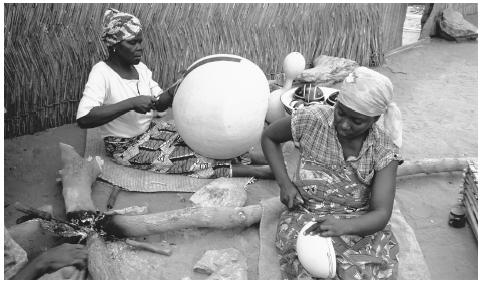Back to: CIVIC EDUCATION SS2
Welcome to Class !!
We are eager to have you join us !!
In today’s Civic Education class, We will be learning about Intercomunnal Relationship. We hope you enjoy the class!
A communal society is a type of society in which the population is small and the people share things in common as brothers and sisters. Examples of communal societies are villages, hamlets, camps, etc.
CHARACTERISTICS OF COMMUNAL SOCIETY
- The community is usually small
- It is usually homogeneous in nature.
- Majority of the people engage in primary activities e.g. farming.
- Majority of the people are not educated.
- Houses are dispersed and may be separated by farmlands.
- Social relationships are personal and intimate
- There is a strong sense of communal responsibilities and group solidarity among members of the community.
INTER-COMMUNAL RELATIONSHIP: This is the relationship between people from different communal societies. The relationship between people from different communities is based on economic, social and political activities.
ECONOMIC ACTIVITIES
Communal societies are basically agrarian in occupation and in most cases, the community produces the same type of agricultural products. Members of the community work together in clearing bushes and preparing farmland for planting and harvesting. In many parts of Nigeria, men are assisted by their wives to harvest agricultural product, others in the community may be engaged in some specialized occupations such as pot-making, mat weaving, blacksmithing, hunting and traditional medicine.

SOCIAL ACTIVITIES
Communal societies encourage inter-communal marriages, worshipping in common ancestral shrines, and belief in a god or goddess. They also work together in digging wells and ponds, maintenance of common markets and clearing of roads. This helps to promote the spirit of solidarity, oneness and healthy community life.

POLITICAL ACTIVITIES
Political activities in communal societies include the grouping of people into different age-grades, selection of leaders, enforcement of local customs, the punishment of erring members and assignment of roles. Leaders are periodically chosen and replaced. It should be noted however, the most communal societies practice direct democracy.
EVALUATION
- Explain how people living in communal societies relate to one another?
- Explain economic and political activities in a communal society.
SKILLS THAT PROMOTE INTER-COMMUNAL RELATIONSHIP
- Tolerance among members of the communities.
- Respect for human rights.
- Access to justice whenever the need arises.
- Inter-communal marriages.
- Engagement in sports activities.
- Good governance.
GENERAL EVALUATION
- What is a communal society?
- State three characteristics of communal society.
- Explain the activities in a communal society?
- State four duties of the police.
- What is a human right?
READING ASSIGNMENT
Inter-Communal Relationship: Fundamentals of Civic Education for Senior Secondary Book 2, Sola Akinyemi, Pages 113-118.
SECTION B
- List four benefits of an inter-communal relationship.
- State five duties of the community leaders in a communal society
We have come to the end of this class. We do hope you enjoyed the class?
Should you have any further question, feel free to ask in the comment section below and trust us to respond as soon as possible.
In our next class, we will be learning about the Settlement of Disputes in Intercommunal Societies. We are very much eager to meet you there.

Importance of inter communal relationship at rural,urban and national level
Explain the importance of inter communal relationship at rural,urban and national level
The three levels of inter communal relationship
What are the examples of inter communal relationship
Peace.
Cooperation.
Unity.